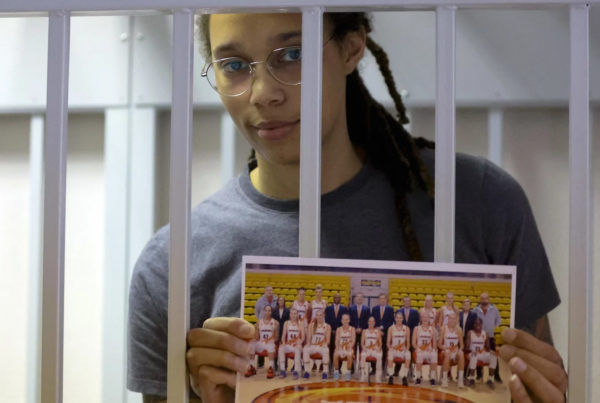Voters in Kansas, one of the most conservative states in the country, on Tuesday voted against a proposal that would have removed the right to abortion from the state constitution.
That’s raising the eyebrows of political analysts eager for insight into how the overturn of Roe v. Wade may play out in the midterm elections – including in the Texas governor’s race. Brandon Rottinghaus, a political science professor at the University of Houston, spoke with the Texas Standard about the implications for voter turnout and campaigning in Texas headed into November.
This transcript has been edited lightly for clarity:
Texas Standard: What exactly did this proposal in Kansas entail?
Brandon Rottinghaus: Basically, the voters in the Jayhawk State rejected a proposed change to the state’s constitution that would remove the right to an abortion. This is a real post-Roe political earthquake. We don’t see them that often in a ruby red state, like you mentioned. You had 60% of the voters saying that they wanted to not remove that right. So there’s a definite serious amount of political resistance to changing how the country deals with abortion rights.
So lawmakers had earlier put a right to abortion in the Kansas Constitution,and voters basically said ‘we want it to stay.’ How could the rejection of this proposal signal voter disdain across the board when it comes to a reversal of Roe v. Wade and the abortion bans that have been adopted in several conservative states right now?
Yeah, it’s a really good question. And I think that you know, the implications of Texas are pretty direct. I want to start with how turnout and registration are connected to this. We saw registration balloon in the days after the Dobbs decision was announced. The Democrats had an 8-point advantage for people who registered. Seventy percent of Kansans who registered to vote after the Dobbs decision were women. So this is definitely a coalition that Texas Democrats want to win.
The other was that turnout was massive. For a primary election, you had basically turnout that looked a lot like what it’s going to be for the fall. And even in a midterm election where turnout is not spectacular, you saw a serious amount of attention to this race. So Democrats in Texas are always saying that, you know, this is not a red state, it’s a non-voting state. We’ve seen some indication of that. But if the dynamics of the Kansas race hold in any way in Texas, I think you’re going to see a much closer race than expected even a year ago.
How do you think this might recalibrate or reshape, if at all, Republican and Democratic campaigns moving forward? And obviously a lot of eyes on the governor’s race.
Yeah, I mean, you and I had talked a while back about how the governor’s race was shaping up. It didn’t look to be that competitive, but a lot of things have changed, not the least of which, of course, this post-Dobbs decision. I think that, for one, the race is nationalized now. I think that you’ve got, basically, a national target on Gov. Greg Abbott. That’s why you see Beto O’Rourke’s money from all over the place rolling into Texas. I think for him it’s a problem because it effectively highlights how extreme the Republican Party has become. And although that plays well with Republicans, it doesn’t, of course, play so well with the rest of Texans.
I think this also gives Democrats an opportunity to rally reluctant Republicans, people who are moderates or independents, who may be a little bit concerned about how out of touch the party has become. I think it also gives a chance for Democrats to be able to rally mortarboard voters. These college-educated voters have been effectively moving more to the Democratic Party nationally, and we certainly see that change in Texas. That probably means you’re going to get more suburban wins, you’re going to get more young voters on your side, and you’re going to get more women on your side.
Any other key takeaways from Tuesday night’s primaries?
I think one big takeaway was just the degree to which Donald Trump’s endorsements still matter. Despite all of the kind of hullabaloo in Washington and the concerns about, you know, spreading these lies about the election, the former president was still able to rack up wins in Michigan and Arizona. This obviously suggests that his political brand is still pretty strong, but of course, there’s still a tarnish on it. And as things get closer to November, I think we’ll see how that shapes up a little bit in terms of where Texans are.















